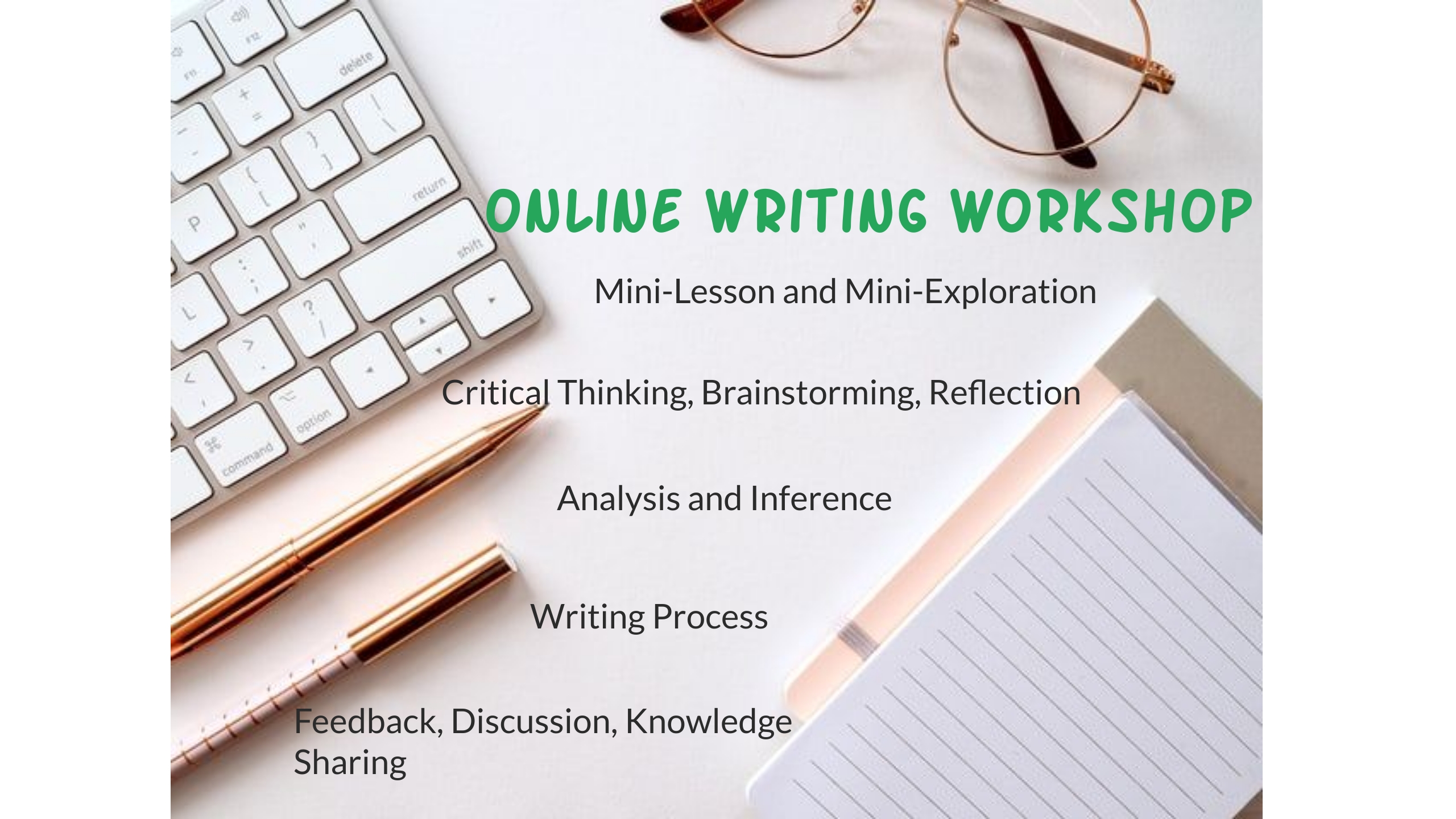
The benefits you can reap from engaging in an online writing workshop are immense. The reason is that even if you have a strong theoretical foundation or knowledge of writing techniques, it is useless without putting it into practice, or simply writing and writing…
Enjoy LESSON 5 by EESSAYS, subscribe to be the first to learn:
1. What Is a Digital or Online Writing Workshop?
In fact, a writing workshop is a method of teaching writing in a classroom by engaging learners in writing as a process.
It has a certain structure of a mini-lesson, writing itself, feedback of the instructor, as well as sharing and discussions (Victoria State Government, 2019). Moreover, all stages usually take one hour almost daily.
Furthermore, the tool is not only used in a physical classroom but also a virtual one, or in the digital environment, through discussion forums or blogging.
Note that the advantage of this method is that it improves writing skills through reflections on different topics and writing with focus on the audience of choice.
In addition, regular online writing workshops also speed up the process of researching and finding necessary information as evidence of the topic.
They can help supplement written texts with visual materials and videos. Finally and most importantly, they contribute to gaining new knowledge through critical thinking.
2. How to Turn a Mini-Lesson into Mini-Exploration and Search for Information
The more you write, the less time you need to spend on prewriting and writing. Vice versa, the less time you spend on collecting data and writing, the more content you can produce.
In fact, the role of the instructor is actually to organize workshops, allocate the time to each activity, and encourage the group to share and discuss.
So you can also organize writing workshops using socia media, your blog, or virtual sessions.
Particularly, choose the topic, question, issue, or problem to discuss and publish it online.
Furthermore, you can motivate yourself to write by creating workshops for yourself daily.
Therefore, organize a mini-lesson (around 15-30 minutes) to determine the structure and gain background knowledge of the topic of your choice:
- first, choose a broad topic;
- determine the target reader;
- brainstorm to find ideas related to the topic;
- use critical thinking and reflection to bookmark and choose relevant narrow ideas;
- search for and filter sources with reliable data, research, facts, and statistics (if applicable) to support the topic (those having doi identifiers, from Google Scholar, educational, organizational, or governmental websites, or from quality magazines);
- conclude what you have learned from this and what the reader can learn.
3. Why to Use Critical Thinking, Brainstorming, and Reflection in an Online Writing Workshop
In your writing workshop, critical thinking, self-reflection, or simply reflection, and brainstorming will help to determine narrow subtopics. Specifically, these can be used as an outline for your piece of writing.
First, brainstorm all connected ideas. If you engage in creative writing and describe a certain event, think what can happen at the same time or around, what is the scenery, and how the two events are connected.
Second, think critically how subtopics can contribute to understanding the main topic.
Use self-reflection to determine your feelings, position, or attitudes to the topic. Continue reflecting on the causes of such thoughts, connections, explanations, etc.
4. When to Analyze, Make Inference, and Write
You can draw a chart on your draft with ideas. After this, take a look, analyze, and determine connections between them. Then make inference and write down your thoughts (spare around 30 minutes on writing).
5. Where to Share and Publish
Publish or post your reflections or piece of writing on the topic on social media platforms. Organize live discussions, share thoughts and knowledge, and summarize what one can learn from this through thinking critically. Note that critical thinking involves considering all sides of the topic or its pros and cons. Furthermore, comment on feedback to your writing.
Finally, practice regularly to compose using an online writing workshop, post on social media, and organize discussions.
Reference
Victoria State Government. (2019, December 12). Literacy teaching toolkit: The writing workshop. https://www.education.vic.gov.au/school/teachers/teachingresources/discipline/english/literacy/writing/Pages/approachesworkshop.aspx
